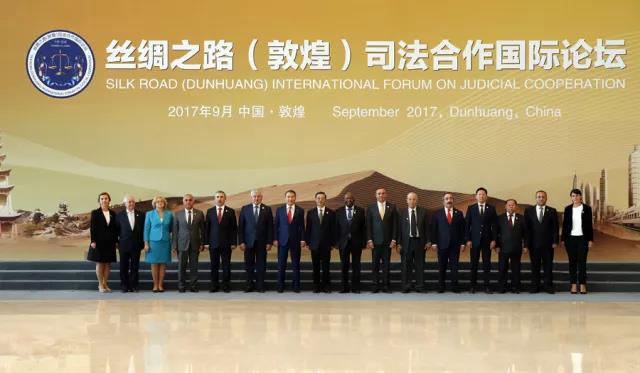Top court vows to step up legal support along Belt and Road
China's highest court vowed on Tuesday to increase judicial cooperation with countries and regions involved in the Belt and Road Initiative.
|
The Silk Road International Forum on Judicial Cooperation is held on Sept. 26 in Dunhuang, Gansu province. [Photo/court.gov.cn] |
The initiative, which was proposed by President Xi Jinping in 2013 and includes the Silk Road Economic Belt and the 21st Century Maritime Silk Road, aims to create a trade and infrastructure network connecting Asia, Europe and Africa.
As economic cooperation is extended to countries and regions along the Belt and Road, judicial cooperation also needs to improve, according to the Supreme People's Court.
"Court officers, including judges, are demanding more communication and training on legal issues and disputes arising from the initiative, which will aid resolution of cases," Zhou Qiang, president of the SPC, said during the Silk Road International Forum on Judicial Cooperation in Dunhuang, Gansu province.
He called on countries and regions involved in the initiative to increase efforts in handling civil and commercial disputes involving foreigners, and to join hands to fight terrorism and cross-border crime.
He also shared details of China's judicial reform over the past five years, adding that judicial cooperation on how to effectively tackle financial disputes is necessary due to the rapid progress of the initiative.
"In addition, a comprehensive judicial system needs to be created by making bilateral or multilateral treaties," he said. "The more judicial cooperation among the countries and regions, the more improvements to the initiative."
More than 300 people from 16 countries, including Turkey and Kazakhstan, attended the one-day forum. They held discussions on several legal issues, such as judicial reform and rule of law, judicial culture and awareness, and a mechanism on how to solve cross-border disputes.
